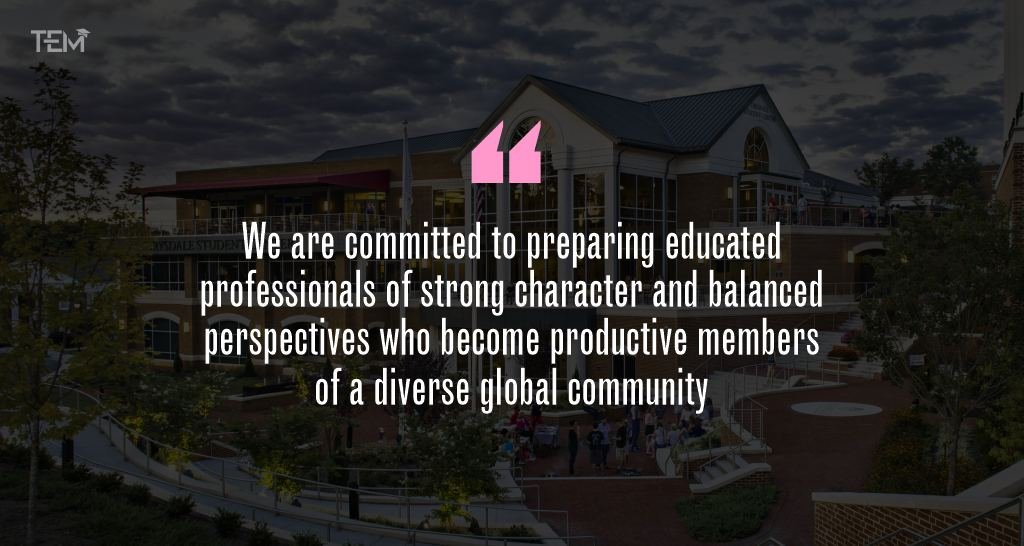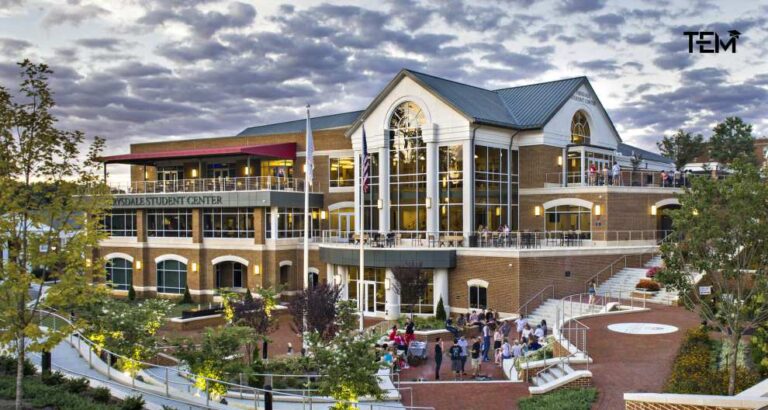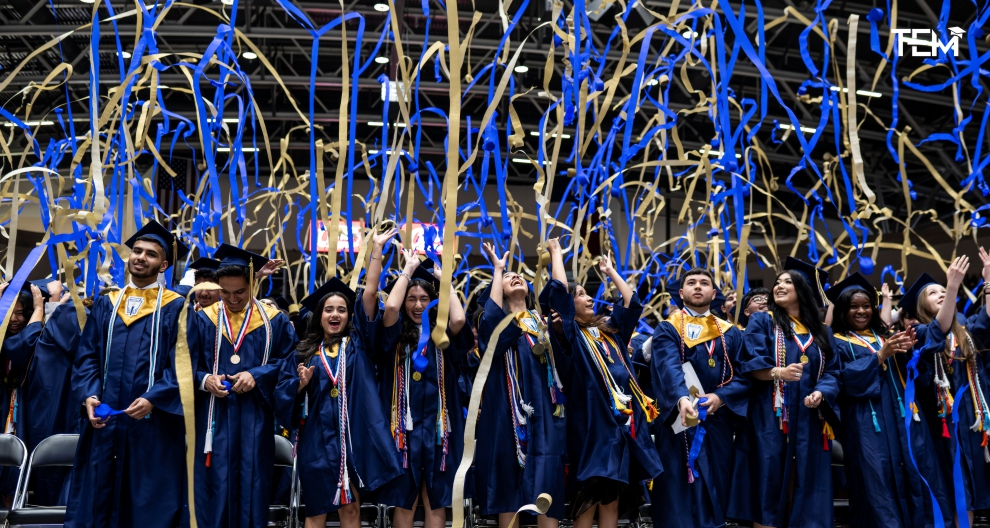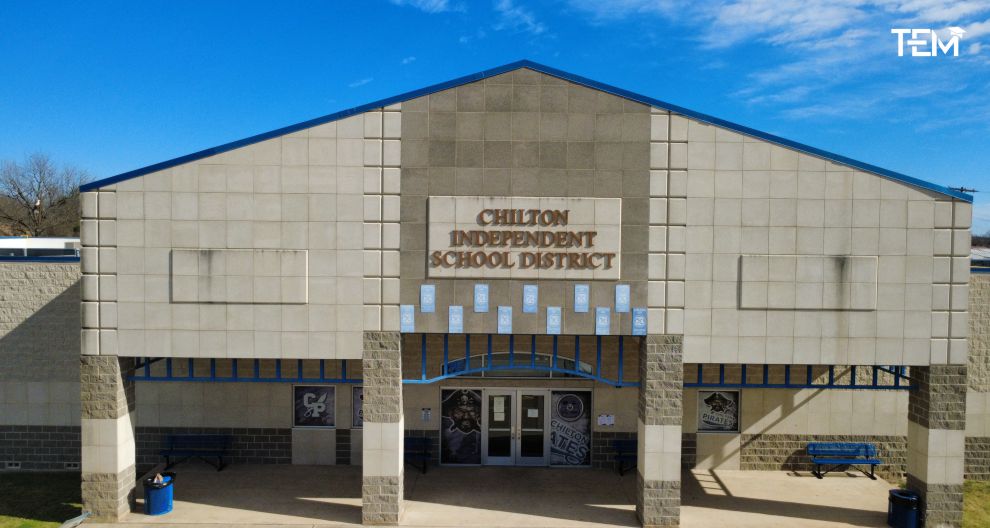It’s a quiet morning in Lynchburg, Virginia, but things are already buzzing inside the School of Professional & Applied Sciences. Students in the business program are reviewing investment strategies in a real-world student-managed fund. Down the hall, marketing majors are prepping for a campus-wide focus group, while others work closely with faculty on consulting projects that go beyond the classroom. For many here, college is not just about lectures or exams—it’s about building the tools to thrive in a rapidly changing world.
The School of Professional & Applied Sciences at the University of Lynchburg isn’t just another academic division. It’s where students come to find direction, grow their skills, and step confidently into the workforce. Its story begins with a mission rooted in preparing individuals to become purposeful professionals—and the execution of that mission can be felt in every hallway, classroom, and office.
A Mission with Momentum
The School of Professional & Applied Sciences was built on the belief that education should do more than inform—it should transform. In line with the larger mission of the University of Lynchburg, the school works to shape students into professionals who are ready to lead and serve in their chosen fields.
“We want our students to graduate confident in their ability to make a difference,” says Dr. Gerald Prante, Associate Dean at the Institute. With a focus on content, pedagogy, and practical application, the school blends liberal arts with rigorous professional studies at both undergraduate and graduate levels. It’s a space where collaboration and self-reflection are part of the everyday rhythm.
Programs are nationally accredited and shaped by a shared philosophy: to guide, motivate, and nurture through integrated, experience-rich learning. That philosophy isn’t just written on the walls—it shows up in the school’s track record, its community, and its graduates.
Programs That Prepare for the Real World
Students can pursue degrees in Accounting, Business Administration, Economics, Financial Economics, Marketing, Digital Media Marketing, Equestrian Sport Management, and Sport Management. It’s a diverse slate, but there’s one thread running through all of them: real-world relevance.
These programs are designed to give students a competitive edge in the marketplace. Faculty bring their industry knowledge directly into the classroom, so students don’t just learn theories—they learn what those theories look like in boardrooms, startups, and federal offices.
In Digital Media Marketing, for example, students gain experience with current platforms and tools, often collaborating on campaigns that simulate professional settings.In Financial Economics, the Gillian Stoettner Student-Managed Investment Fund puts actual money and market decisions in the hands of those still learning, giving them a head start in understanding risk, reward, and responsibility.
Admissions and Affordability
The University of Lynchburg takes pride in making education accessible without sacrificing quality. The admissions process is flexible, offering both Early Decision and Regular Decision tracks. Prospective students can apply through the Common Application or the university’s own portal, and standardized test scores are optional.
What stands out most is the school’s commitment to affordability. Every single student receives some form of financial aid. The university distributes more than $30 million annually in assistance, from need-based grants to merit-based scholarships. “Our goal is to ensure no qualified student is held back by finances,” Dr. Eric Kyper explains. And they’ve made good on that goal with renewable merit scholarships and federal aid programs like Pell Grants and Work-Study.
A Faculty That’s Walked the Walk
One of the most striking features of the School of Professional & Applied Sciences is its faculty. These are not just academics—they’re practitioners. They’ve worked at places like Deloitte, General Electric, Ernst & Young, and the DEA. Some run their own firms in accounting and marketing. Others are regularly tapped by the media and private organizations for their expertise.
This depth of experience means that classroom discussions often reflect the complexities and nuances of the real world. Students learn not just from textbooks, but from first-hand stories of boardroom negotiations, startup pivots, and regulatory hurdles.
And it goes both ways. Faculty regularly bring students into their professional projects. “If a student shows real promise,” says Dr. Michael Schnur, “we’ll bring them in to assist on external consulting work. It’s how they learn—and it’s how we stay sharp.”
Learning by Doing
Internships, practicums, and applied projects aren’t just encouraged—they’re built into the curriculum. Through the Student Managed Investment Fund, undergraduates gain real investment experience, managing actual assets with oversight and support. The Management Consulting Group gives students the chance to advise local businesses and organizations, adding real deliverables to their résumés before they graduate.
The hands-on nature of the SMIF is a cornerstone of the student experience, offering lessons that resonate long after graduation. As alumnus Jeremy Johnson ’23, now at Duke’s Fuqua School of Business, reflects:
“The Student Managed Investment Fund was a key component of my education and experience at Lynchburg. It allowed us the opportunity to practice—in a controlled environment—what we’d been learning in the classroom, with real financial implications. When traveling to Chicago to connect with similar funds, we realized how much freedom was granted to members of the Lynchburg fund. This autonomy in decision-making was a great opportunity and responsibility.”
“At the beginning of my sophomore year I joined SMIF and since then I haven’t looked back,” says Kayden Hinchey ’26, now the portfolio manager for alternative investments. “SMIF has been an instrumental tool in my life that has advanced my knowledge in finance, economics, teamwork and management… This experience has been amazing and I can’t wait to see where it will take me!”
Faculty members also facilitate these experiences through their own networks. Many are actively consulting, and they use those connections to create meaningful opportunities for students. When high-performing students earn a faculty member’s trust, they might find themselves helping to solve real problems for actual clients.
Student Life That Builds More Than a Résumé
Academics are just one piece of the experience. The School of Professional & Applied Sciences fosters a vibrant student life with plenty of opportunities for engagement and leadership.
Students join honor societies like Omicron Delta Epsilon (economics), Delta Mu Delta (business), and Delta Sigma Pi (professional business fraternity). Entrepreneurial spirits thrive in the Lynchburg Collegiate Entrepreneurs’ Organization, while others gain practical experience through clubs like the Management Consulting Group.
Outside the classroom, life in Lynchburg offers everything from whitewater rafting to go-kart racing. Students enjoy events like Dell Beach Days and Casino Night and have access to cultural resources like the Daura Museum of Art. Those seeking global experiences can participate in faculty-led trips and exchange programs in South Korea, Austria, and across Europe.
A Place Where Everyone Belongs
Diversity, equity, and inclusion aren’t afterthoughts at Lynchburg—they’re embedded in the structure of the university. The Office of Belonging works to create a safe, inclusive environment through programs, training, and support networks.
Workshops, affinity groups, and community events help students understand and value diverse perspectives. The Diversity and Inclusion Innovation Grant funds student- and faculty-led initiatives aimed at justice and equity.
For international students, support begins before they even set foot on campus. The International Student Support Services team helps with visa paperwork, orientation, housing, and social integration. Scholarships like the Global Presidential Scholarship reward academic achievement, while on-campus jobs and OPT programs help international students build their futures.
Support That Extends Beyond Graduation
Career development at Lynchburg is hands-on and personal. The school has a dedicated internship coordinator and strong ties to local employers. Faculty stay in close contact with alumni, who often return with job openings or mentorship opportunities.
“Sometimes our alumni will email asking if we know someone who’s ready to step into a specific role,” Dr. Gerald Prante notes. “It’s that personal.”
Networking happens naturally here. Whether through formal events or informal conversations, students begin building professional relationships early on. This web of support plays a big part in strong job placement numbers after graduation.
A Word from the Dean
When asked what message he would share with students and parents, Dean Dr. Stephen Smith doesn’t hesitate: “Jobs! Jobs! Jobs!” For him, the mission is clear—education should lead to employment. And that only happens when students are truly prepared to add value.
“Our business faculty are committed to making sure our students are well educated and, upon graduation, able to receive great job offers and make meaningful contributions to their employers,” he says. It’s a simple promise, but one the school delivers on again and again.
What’s Next for Lynchburg
Over the next five years, the School of Professional & Applied Sciences has its sights set on growing enrollment, deepening internship pipelines, and keeping its curriculum at the cutting edge. That includes expanding into fast-evolving fields like artificial intelligence. In fact, AI has already been integrated into the curriculum and will evolve to meet market demands in the business world.
It’s not change for the sake of trend-chasing. It’s about giving students the tools they need to stay ahead in industries that don’t wait. Faculty want to ensure that when students graduate, they’re not just job-ready—they’re future-ready.
Results That Speak for Themselves
Graduates from Lynchburg’s business and economics programs go on to work for organizations like S&P Financial, Brown Edwards, BWXT, and even the federal government. Median starting salaries for accounting and economics majors hover around $60,000, while other specialties see figures close to $55,000.
These aren’t just numbers—they represent lives changed, goals met, and careers launched. And behind those success stories is a school that’s stayed grounded in its mission, even as the professional world keeps evolving.
Quote

“We are committed to preparing educated professionals of strong character and balanced perspectives who become productive members of a diverse global community.”
Also Read: Excellence in Business Education: USA’s Leading Schools


